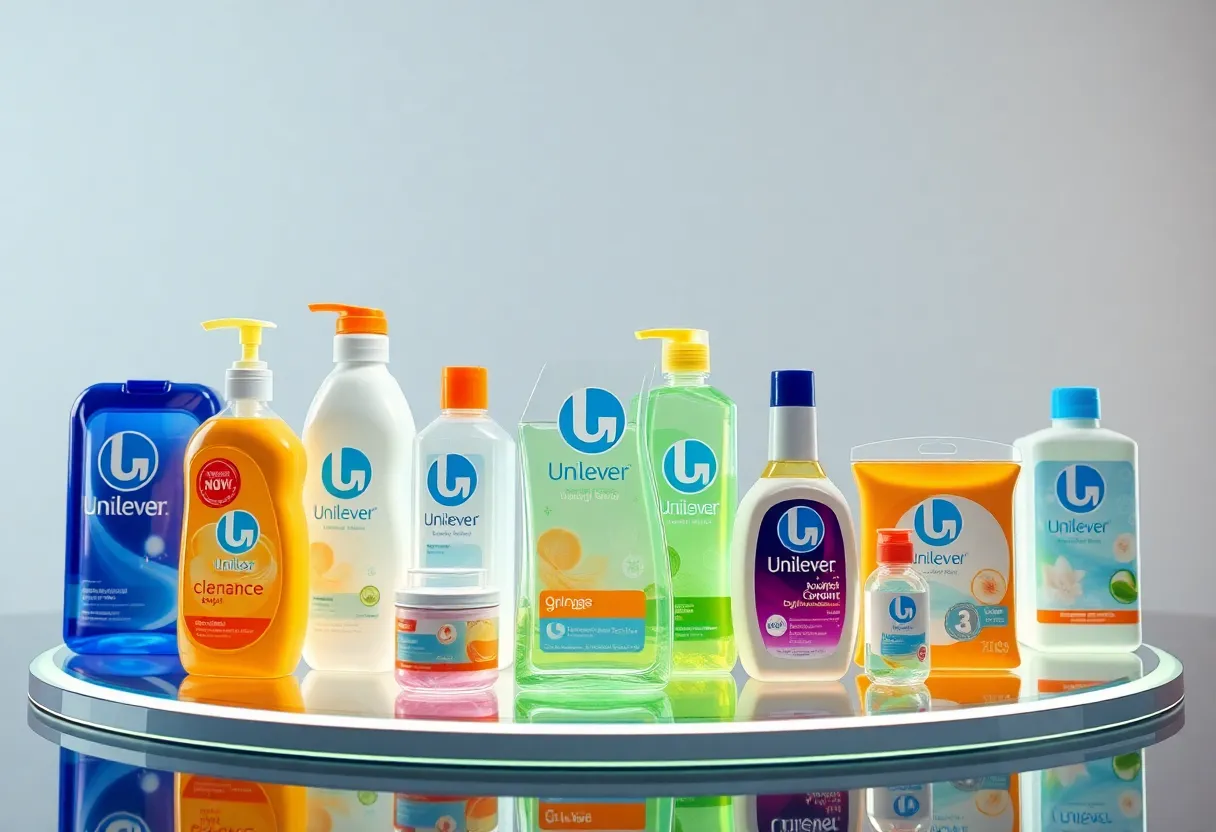News Summary
Unilever is revolutionizing its marketing strategies by utilizing Nvidia’s Omniverse to create digital twins, which are detailed 3D replicas of their products. This innovative approach allows for faster content creation, cost efficiency, and improved brand consistency across platforms. Initial results show significant savings and quicker turnaround in the beauty segment, while the company emphasizes responsible AI use. Unilever is reshaping its marketing budget to focus on social media and influencer collaborations amidst rising competition in the CPG sector.
Unilever Innovates Marketing with Nvidia’s Omniverse
In a bid to enhance its marketing efficiency, Unilever is diving into the future of product representation by utilizing Nvidia’s Omniverse platform to create what they call “digital twins.” This exciting initiative is all about developing detailed 3D replicas of their products, which can be used to adapt marketing strategies across various channels effortlessly.
What Are Digital Twins?
Digital twins are essentially highly detailed 3D replicas that encapsulate everything from product variants to packaging and language labels. Unilever refers to this innovative approach as creating a “single digital truth.” By having all these components neatly laid out in one file, marketing teams can significantly reduce time and costs while ensuring that the brand identity is consistently maintained across all platforms.
Boosting Marketing Efficiency
The introduction of digital twins allows Unilever’s marketing teams to generate product images much faster than before. It’s a game-changer that cuts down on the repetitive tasks that normally come with adapting content for different marketing channels. With this newfound efficiency, Unilever’s marketing wizards can focus more on innovative and creative projects that can really make their brand shine.
Unilever’s spokesperson, Bracey, echoed these sentiments by stating that this transformation has made previously overwhelming processes simpler and more manageable. She emphasized that the fresh approach is enabling teams to think bigger and unleash their creativity like never before.
Success in the Beauty Segment
The beauty and well-being segment of Unilever was the first to dip its toes into this AI-driven technology, and the early results are very encouraging. This pilot initiative led to a staggering 55% increase in cost savings and a 65% faster turnaround in content creation. Additionally, several beauty brands under Unilever reported a *noticeable* boost in consumer purchase intent following these impressive enhancements.
Responsible Use of AI
Amidst these advancements, Unilever is navigating the world of AI with caution. Their commitment to authenticity is highlighted by the company’s promise that Dove will not utilize AI models to replace real women in its advertisements, in keeping with its “Real Beauty” platform. This demonstrates Unilever’s dedication to ensuring that technology serves the brand and its values rather than overshadowing them.
Looking Forward
As the company moves under the guidance of new CEO Fernando Fernandez, Unilever is shifting gears. They plan to allocate 50% of their marketing budget towards social media and are looking to expand collaborations with influencers, making their marketing approach more contemporary and relevant.
However, it’s worth noting that Unilever faces increasing competition, especially with Proctor & Gamble’s recent triumph in several performance metrics. This heightened competition in the consumer packaged goods (CPG) sector presents both challenges and opportunities.
AI Integration Across CPG
The integration of AI is becoming a pivotal aspect of marketing strategies for CPG companies, and Unilever is no exception. A recent survey by McKinsey revealed that while 71% of CPG leaders have caught the AI wave, there remains a significant opportunity to scale these capabilities. Many companies, including Unilever, have yet to fully explore the potential of generative AI compared to other sectors.
Anticipating Customer Needs
As marketing evolves, the application of AI is helping CPG companies like Unilever to not only anticipate consumer needs but also to enhance customer engagement through data-driven insights. This is increasingly important, especially as the reliance on third-party data begins to wane, and a focus on first-party data becomes the norm.
In conclusion, stakeholders in the CPG sector, including Unilever, are recognizing that the strategic application of generative AI is key to unlocking sustainable growth and improving market positioning. It’s an exciting time for the industry, and we can’t wait to see how Unilever’s journey unfolds in this new digital landscape!
Deeper Dive: News & Info About This Topic
HERE Resources
Big Changes in Social Media World: TikTok Users on the Move!
Growing Pains: The Disconnect Between CMOs and CEOs
Unilever’s Innovative Leap into AI and Digital Twins
Generative AI: The New Star of Marketing
Adobe Summit 2025: A Groundbreaking Shift in Customer Experience
Exciting Developments in Digital Marketing and AI Technology
Exciting Social Media Trends to Watch for in 2025!
Adobe and Estée Lauder Team Up to Transform Digital Marketing
Preparing for 2025: Essential Changes to Marketing Strategies and Team Dynamics
Exciting Times Ahead: Unilever’s Bold New Marketing Strategy
Additional Resources
- Marketing Dive: Unilever AI Marketing Bets
- Bain & Company: Consumer Products Report 2025
- AWS: Mastering Direct-to-Consumer Marketing
- Wikipedia: Artificial Intelligence in Marketing
- Food Institute: AI Inspires Marketing Hyper-Personalization
- Google Search: Artificial Intelligence in CPG Marketing
- McKinsey: The Real Value of Digital and AI Transformation in CPG
- Encyclopedia Britannica: Consumer Packaged Goods








